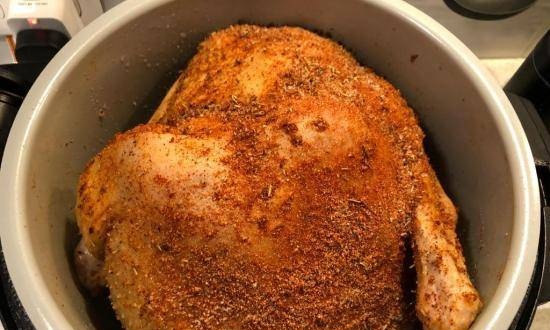|
 "Eat to health!" - This wish is so widespread in our everyday life! We treat the child with a huge bar of chocolate and, watching how the baby devours it, we smile: "To your health!" We seat the guests at a table full of food and offer sincerely: "Eat to your health!" We suffer from another "fashionable" diet and try to joke: "Not only for the sake of losing weight, but health for ...". "Eat to health!" - This wish is so widespread in our everyday life! We treat the child with a huge bar of chocolate and, watching how the baby devours it, we smile: "To your health!" We seat the guests at a table full of food and offer sincerely: "Eat to your health!" We suffer from another "fashionable" diet and try to joke: "Not only for the sake of losing weight, but health for ...".
And if a warning comes from somewhere: “Harmful!”, We either brush it off or defend ourselves with the conventional argument: “The organism itself knows what it needs. If you really want to, it means it's useful. "
Do these words have their own truth? Indeed, the human body is a unique self-regulating system. Only that's the trouble. Over the years, each of us has been very successful in drowning out, disrupting the nature of this ability of self-regulation. Therefore, our "want" is often far from the true needs of the body. And following unregulated desires, we commit violence against ourselves, the results of which we do not necessarily feel immediately.
Nutritionists have such a term: balanced nutrition, that is, the kind of nutrition that a person needs for normal life, good self-awareness, and even - to prolong life. (According to the World Health Organization, a balanced diet can lengthen our lives by about 7 years!)
What is it - a balanced, rational diet? Academician IP Pavlov said: “If an excessive and exclusive passion for food is animality, then any inattention to food is imprudence. And the truth here, as elsewhere, lies in the middle. "
According to modern scientists, the average adult needs more than 600 different substances per day, in particular: 1900 ml of liquid (in drinks, meals and in "dry" foods), 90 g of protein, 90 g of fat. 450 g of carbohydrates, 0.1 g of vitamins, 20 g of minerals, trace elements and ultra trace elements.
But you and I are not "average", but quite specific people with different lifestyles, physical activity and health. This means that our needs are also different, moreover, they periodically change for each individual person. For example, the energy expenditures of children from one to three years old are about 1700 kcal less than adolescents.
And young people between the ages of 28 and 39 should - all other things being equal - get 200 kcal more energy in their diet than 40-60-year-olds.
By the way, after the forty-year milestone, according to some scientists, a person should reconsider his diet a little. After all, this is also a transitional age - from youth to maturity. If you are practically healthy and physically active, you do not need any special nutrition. However, certain changes are needed in it. Above all, beware of infrequent but heavy meals, an afternoon nap, and a heavy dinner. It is best to eat in moderation 4-5 times a day. Reduce the amount of table salt in the diet (it should be no more than 10 g), sweet and fatty foods.
With age, the body develops conditions that at least do not prevent the occurrence of so-called normal non-communicable diseases, in particular obesity.
 The causes of obesity, in general, are well known to almost everyone: overeating, improper diet (rarely, but a lot), an unbalanced diet in which there are too many easily digestible carbohydrates, high-energy fat-containing foods, table salt, as well as a sedentary lifestyle .. Being overweight, in turn, reduces the body's resistance to many serious diseases.French oncologist A. Joayot believes: “Fifty percent of all cancers present today, and those that will appear before 2000, are the result of malnutrition. This applies to four types of cancer: breast cancer in women, prostate cancer in men, stomach and intestinal cancer in both. " The causes of obesity, in general, are well known to almost everyone: overeating, improper diet (rarely, but a lot), an unbalanced diet in which there are too many easily digestible carbohydrates, high-energy fat-containing foods, table salt, as well as a sedentary lifestyle .. Being overweight, in turn, reduces the body's resistance to many serious diseases.French oncologist A. Joayot believes: “Fifty percent of all cancers present today, and those that will appear before 2000, are the result of malnutrition. This applies to four types of cancer: breast cancer in women, prostate cancer in men, stomach and intestinal cancer in both. "
Obesity and unbalanced nutrition often become the causes of atherosclerosis and its formidable consequences - heart attack, stroke. It has now been proven that the higher the level of cholesterol in the blood, the greater the likelihood of disease. This substance is necessary for the body, it is produced by the liver. The excess amount of cholesterol comes from food. The American National Heart, Lung and Blood Institute believes that the amount of "incoming" cholesterol should not exceed 300 mg (one egg yolk contains 272 mg of the substance, 85 g of beef liver - 331 mg). Saturated fats, found in meat, dairy products and some plant foods, stimulate the production of cholesterol in the liver, which explains the harm of excessive consumption of protein and fat-containing foods. As a prophylaxis and treatment of atherosclerosis that has already arisen, American scientists propose, first of all, to limit the amount of "incoming" cholesterol, to lower its level with the help of physical exertion and to widely include in the diet foods that remove excess of this substance from the tissues. Such properties, in particular, are possessed by oat and rice flakes. Data from D. Andersen, a professor at the University of Kentucky, show that a diet of 85 grams of oatmeal per day can lower cholesterol levels by 23%.
Excessive consumption of meat, fish, mushroom fried second courses, first courses on strong meat, fish, mushroom broth can become, as most experts believe, the "trigger" of a number of diseases of the central nervous system and even mental disorders.
Taking care of your own diet is also taking care of your children. Not only because we have a common table and that the well-being of the child depends on the health of the parents. Children inherit from us not only the distribution of subcutaneous fat, the number and volume of fat cells, but also the ability of these cells to accumulate and store fat itself. In other words, both purely hereditary traits and obesity acquired by parents from overeating contribute to child obesity. But today it is well known: no less than a quarter of the country's working-age population has such a body weight that this condition can be considered a disease. Moreover: obesity is becoming a common metabolic disease of childhood, 10% of children and adolescents suffer from it.
Therapeutic nutrition (that is, special diets) helps not only prevent, but also cure many unreleased diseases. Naturally, self-medication with diets is unacceptable in the same way as self-medication. However, when it comes to this or that "fashionable" diet, we sometimes get so carried away by the promised end result, for example, quick weight loss, that we forget, apart from the pros, to take into account the disadvantages of the proposed diet. You need to be especially careful about such hobbies of adolescents: for a growing organism, any serious violation of good nutrition can turn into disaster.
Let's take a quick look at the pros and cons of diets especially popular in recent years. Nutritionist 3. M. Evenstein will help us with this.
The oldest diet is vegetarianism. Avoiding animal foods for a short time is certainly beneficial for certain conditions. But is it possible to call "non-killing" nutrition useful throughout life? For 70 years, the proteins of the human body are completely replaced 200 times.Vegetarians, defending their doctrine, do not take into account an important factor: the deficiency of essential substances - amino acids in milk, dairy products, and even more so in plant products. A modern person is simply deprived of the opportunity to eat many kilograms of vegetables and fruits every day, so that the body then “processes” them into its own proteins. And our body has long forgotten how to synthesize a number of essential acids, which are very few in proteins of plant products. In addition, excess dietary fiber, free organic acids, minerals and trace elements depletes some enzyme systems and forces others to inactive. This is not an easy test for the human body.
A sharp restriction or complete rejection of carbohydrates (primarily baked goods, potatoes, etc.) - there is such a diet - leads to rapid weight loss due to the intensively released water. But as soon as the body begins to receive them again, body weight increases rapidly, often exceeding the "initial" one. In addition, long-term carbohydrate-free nutrition disrupts water-salt, protein and vitamin metabolism, the concentration of urea in the blood increases, and uric acid salts in the tissues.
Real legends have been created about the benefits of sprouted wheat grain. There are considerable reasons for this: the wheat germ has high biological, nutritional, and therefore dietary properties. Diet therapy with the inclusion of sprouted wheat grain contributes to more successful treatment of patients with certain diseases of the gastrointestinal tract. However, obtaining a pure embryo presents a certain difficulty. Therefore, it is more appropriate to talk about the benefits of fresh, benign bran.
“Eating according to Shelton” - for connoisseurs it means: to observe the compatibility and incompatibility of food products. The American nutritionist claims that the human body is not adapted to simultaneously digest, for example, meat with pasta or porridge with milk. Some Soviet specialists do not agree with the opinion of their colleague, for it does not find scientific evidence. Shelton's other recommendations do not cause doubts: eat vegetables with fats more often - this way they are better absorbed; introduce more milk, fruits, vegetables into the diet, do not forget about the neuro-emotional factor in the process of eating ... But these tips are not news.
Doctor from Australia P.K. Bragg advises to be treated with hunger. He is not the "father" of the idea, but explains it in his own way and proposes his own system. Very undesirable "shifts" in the body as a result of starvation were discovered by foreign and Soviet scientists. But his supporters also have good reasons. The results of many experiments confirm the possibility of using short-term (3-5 days) fasting for the prevention of myocardial infarction, circulatory disorders of the brain, as well as a set of measures to prevent early aging. It is clear that such "unloading" can only be carried out on the recommendation and under the supervision of a physician.
None of the most modern nutritional methods, including fasting, should be regarded as a kind of panacea, salvation from all ills. Bragg rightly says about this: "A hectic lifestyle is the real reasons for our weakness, premature aging, all our pain and suffering, which turn a person into a heap of ruins."
Sashina E. Yu. ABC of Housekeeping
|
 "Eat to health!" - This wish is so widespread in our everyday life! We treat the child with a huge bar of chocolate and, watching how the baby devours it, we smile: "To your health!" We seat the guests at a table full of food and offer sincerely: "Eat to your health!" We suffer from another "fashionable" diet and try to joke: "Not only for the sake of losing weight, but health for ...".
"Eat to health!" - This wish is so widespread in our everyday life! We treat the child with a huge bar of chocolate and, watching how the baby devours it, we smile: "To your health!" We seat the guests at a table full of food and offer sincerely: "Eat to your health!" We suffer from another "fashionable" diet and try to joke: "Not only for the sake of losing weight, but health for ...".





